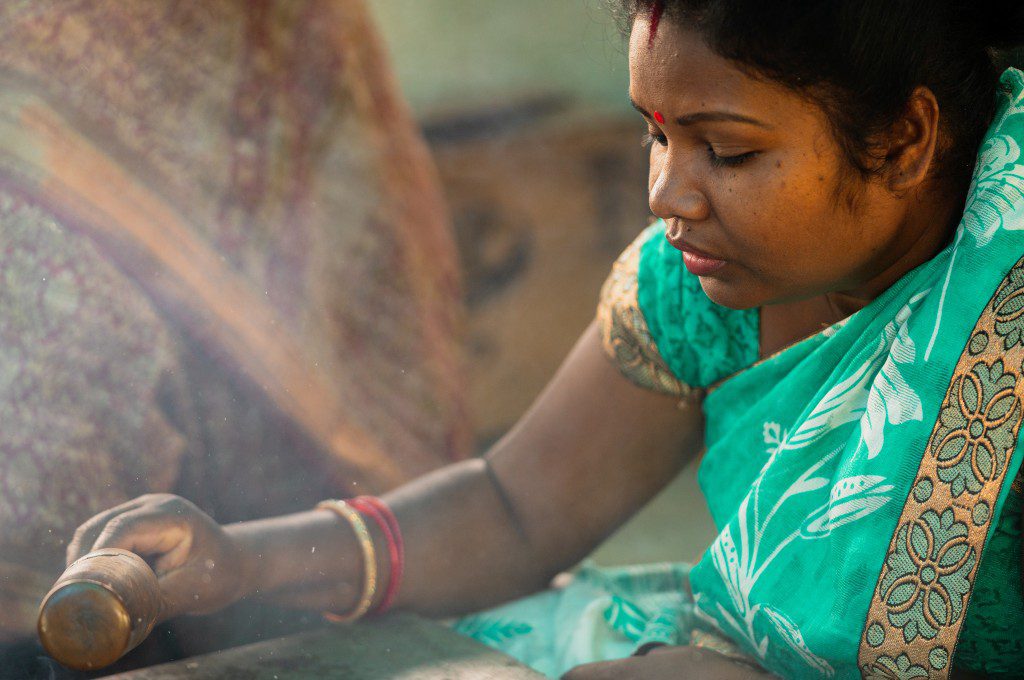Udyogini has linked up the women’s Farmer Producer Organizations (FPOs) with local aggregators (the new age social enterprises) to provide assured inputs and procurement support, thus solving the never-ending issue of cashflow for these institutions. Often in the absence of cashflow the women’s groups are not able to scale up or diversify their portfolios. One case in point is women FPO Chhattisgarh. During Covid-19, the women in Kanker District in Chhattisgarh, could procure, processes and sell over 4 ton of tamarind earning 30% more incomes than usual. They were linked with a local social enterprise, which was on a look out for backward linkages. Once the supply chain facilitated by Udyogini was established in 2019-2020, the women’s FPO went ahead adding custard apples, mangoes and Jamuns in their kitty, ensuring substantial incomes round the year. Moreover, now they are negotiating the terms and conditions on their own with the aggregators – such as receiving training for primary processing to maximising returns on their investments. The whole process has created 10-15 days of labour days for one produce, in absence of which, earlier, women would turn to schemes such as NREGA. More such jobs can be created along the value chains in rural areas boosting the micro-economies of the village.
NextGen Rural Supply Chains
We have seen many examples like above, where women are able to exercise their agency and learn the power of aggregation and negotiation. But the world is rapidly changing, for which, newer sets of skills and negotiation powers will be needed. Digital literacy and supply chain management is one such area where the growing focus should be of NGOs and of the other stakeholders. For, if the women’s collectives (FPOs and Cooperatives) are envisioned as the entrepreneurs of tomorrow dealing with the competitive markets including accessing the open network digital commerce (ONDC), then investing into rural women’s digital literacy and tech entrepreneurship is very critical. Especially as the agriculture is not an attractive proposition for the young people in the rural areas today. There is a critical need to work with young, educated women and men in villages to build their capacities and equipping them to handle the complex processes of running enterprises and managing the supply chains for scaling up.
NextGen Rural Jobs
Further, the developing of road, rail, energy infrastructure is surely helping in strengthening the supply chains. The perishable produce such as custard apples can be shipped to metro cities like Delhi from a remote district Kanker in Chhattisgarh within 12 hours. This reduces the waste in food, but also encourages women to turn to secondary and tertiary processing. The women FPO in Kanker is now at the stage of making the pulp of custard apples grown in their region, but now are moving to making cakes for deep freezing to improve the shelf life. As the supply chains in rural areas mature, the young men and women can be skilled in handling the logistics (warehouse management, transport), digital public infrastructure (e-commerce), green energy (installation and repair work), packaging and branding.
In nutshell the macroeconomics of the country seems conducive for strengthening women’s role in the micro-economies. The young people in rural areas need tailor made skilling, which is beyond the traditional blue-collar jobs in the cities or conventional farm-based enterprises only. If we envision our agriculture sector sophisticated and sustainable, then we must prepare our rural youth with the skills and roles like any other upmarket sectors like IT and Engineering.



Wonderful, very valuable piece